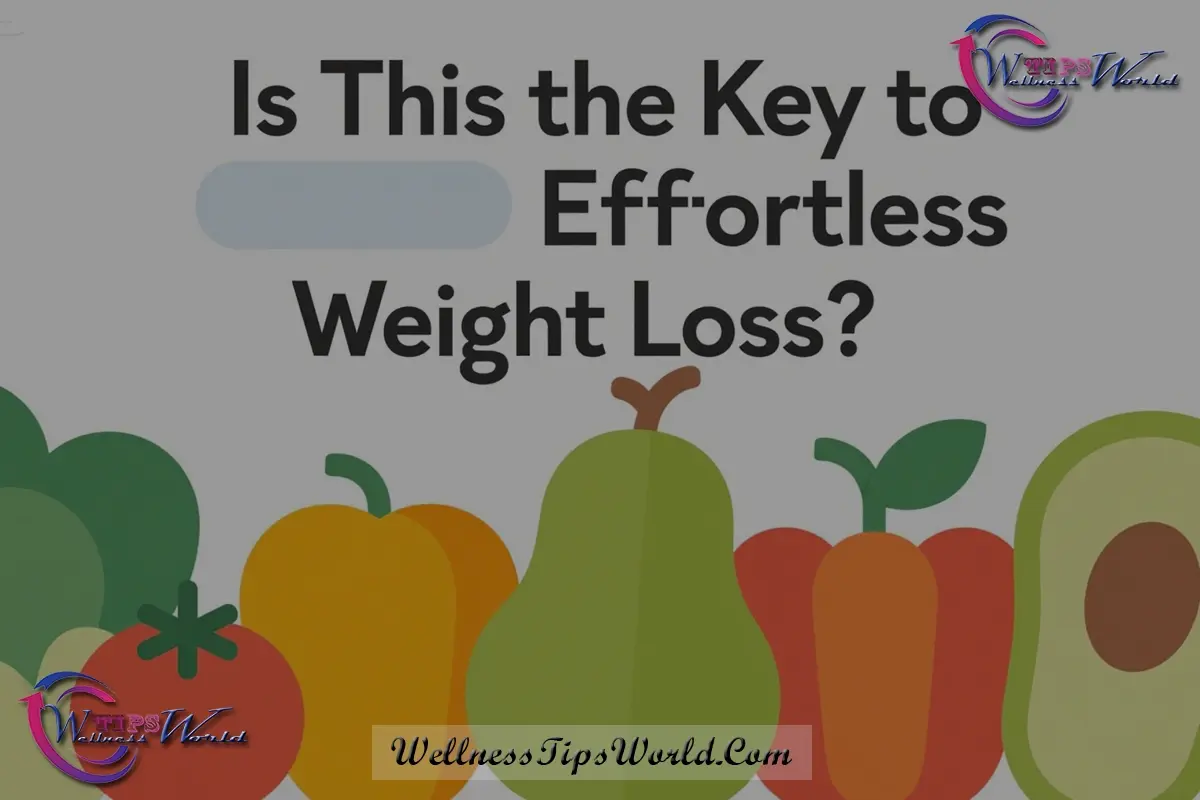Can You Really Lose Weight Without Exercising?
-
15
- 17 Sep, 2025

Losing weight is a common goal for many people, but for some, the thought of exercising can be intimidating or simply unappealing. If you've ever asked yourself, "Is it possible to lose weight without working out?" you’re not alone. It’s a question that has sparked a lot of debate and curiosity in the health and wellness community.
In this article, we’ll explore whether it’s possible to shed pounds without hitting the gym or going for long runs. We’ll also uncover the key factors that contribute to weight loss, explain how diet plays a major role, and provide practical tips for those looking to lose weight without exercise.
By the end of this article, you’ll have a clearer understanding of how weight loss works and the most effective ways to reach your goals without necessarily incorporating exercise into your routine.
What Does Weight Loss Really Mean?
Before diving into the specifics of losing weight without exercise, let’s first define what weight loss actually means. Weight loss occurs when the number of calories you burn exceeds the number of calories you consume. This creates a caloric deficit, which is the fundamental principle behind losing weight.
Exercise plays a role in increasing the number of calories you burn, but it’s not the only factor. Your diet and lifestyle choices can also have a significant impact on the amount of weight you lose.
The Role of Diet in Weight Loss
When it comes to weight loss, diet is arguably the most crucial factor. You can lose weight simply by adjusting your eating habits, even if you don’t exercise regularly. Here’s why:
1. Caloric Intake vs. Caloric Expenditure
The fundamental principle of weight loss is achieving a caloric deficit. By consuming fewer calories than your body needs to maintain its current weight, you can lose pounds over time. This doesn’t require exercise—what matters most is what you eat and how much of it.
2. Focus on Nutrient-Dense Foods
Instead of counting every calorie, focus on eating nutrient-dense foods that keep you full for longer and provide your body with essential nutrients. These foods typically include fruits, vegetables, lean proteins, and whole grains.
By replacing processed and high-calorie foods with healthier options, you can reduce your overall calorie intake without feeling deprived.
3. Portion Control
Even healthy foods can contribute to weight gain if you consume them in large quantities. Portion control is a simple yet effective way to reduce your calorie intake and encourage weight loss. Pay attention to serving sizes and avoid overeating, even if you’re eating healthy foods.
4. Avoiding Hidden Calories
A lot of processed foods, including those labeled as "healthy," are packed with added sugars, unhealthy fats, or excessive calories. Be mindful of these hidden calories, which can add up quickly and hinder your weight loss efforts.
The Impact of Metabolism on Weight Loss
Your metabolism refers to the processes your body uses to convert food into energy. A faster metabolism means you burn more calories even at rest, while a slower metabolism results in fewer calories burned.
While genetics do play a role in metabolism, there are several ways to naturally boost your metabolism:
1. Eat Protein-Rich Foods
Foods that are rich in protein require more energy to digest, which can slightly increase the number of calories you burn.This process is called the thermic effect of food (TEF). Incorporating more protein into your diet—such as lean meats, beans, and tofu—can help you burn more calories throughout the day.
2. Stay Hydrated
Drinking plenty of water can also temporarily boost your metabolism. Some studies suggest that drinking cold water may increase your metabolism because your body uses energy to heat it up to body temperature.
3. Avoid Crash Diets
Crash diets can slow down your metabolism and make weight loss harder in the long run. When you drastically reduce your calorie intake, your body may go into “starvation mode” and reduce the number of calories it burns to conserve energy. This can lead to a plateau in your weight loss journey.
Other Factors Affecting Weight Loss
While diet and metabolism are key factors in losing weight, there are other elements that can influence your ability to shed pounds without exercise.
1. Sleep Quality
Sleep is essential for controlling hormones that influence hunger and metabolism. Poor sleep can increase levels of ghrelin, a hormone that stimulates appetite, while decreasing leptin, a hormone that signals fullness. This hormonal disruption can trigger overeating and obstruct weight loss progress.
Strive for 7-9 hours of restful sleep each night to enhance your weight loss journey.
2. Stress Management
Chronic stress can increase the production of cortisol, a hormone that promotes fat storage, especially around the abdominal area. By finding ways to manage stress—whether through meditation, deep breathing exercises, or relaxation techniques—you can reduce cortisol levels and support your weight loss goals.
3. Hormonal Imbalances
Certain hormonal imbalances, such as hypothyroidism or insulin resistance, can make it more difficult to lose weight. If you’re struggling with weight loss despite making healthy changes to your diet and lifestyle, it may be worth speaking to a healthcare provider to rule out any underlying medical conditions.
Can You Really Lose Weight Without Exercise?
So, can you lose weight without exercising? The answer is yes—diet is the most significant factor when it comes to weight loss. However, it’s important to remember that weight loss is a gradual process that requires consistency and patience. While exercise can certainly accelerate weight loss and improve overall health, it’s not a requirement for shedding pounds.
For those who prefer not to exercise, focusing on creating a caloric deficit through dietary changes, managing stress, improving sleep quality, and making other healthy lifestyle choices can still lead to successful weight loss.
Practical Tips for Losing Weight Without Exercise
If you’re looking to lose weight without exercise, here are some actionable tips that can help:
1. Track Your Food Intake
Use a food journal or a mobile app to track what you’re eating. This will help you become more mindful of your portion sizes and calorie intake.
2. Opt for Whole Foods
Whole, unprocessed foods tend to be lower in calories and more filling than processed foods. Focus on eating a variety of fruits, vegetables, lean proteins, and whole grains to support your weight loss goals.
3. Practice Mindful Eating
Pay attention to how you eat. Eating slowly, savoring your food, and recognizing when you're full can help prevent overeating and reduce calorie intake.
4. Manage Your Environment
If you’re trying to avoid temptation, keep unhealthy foods out of sight and stock your kitchen with healthier options. This can make it easier to stick to your weight loss plan.
5. Drink Plenty of Water
Staying hydrated is key for overall health and can help with weight loss by curbing hunger and increasing the number of calories your body burns.
Losing weight without exercise is not only possible, it’s achievable for many people. The most important factors in weight loss are creating a caloric deficit through diet, boosting metabolism, managing stress, and getting adequate sleep. While exercise can certainly enhance your results, it is not a necessity for achieving weight loss.
By focusing on smart food choices, practicing portion control, and incorporating other healthy habits, you can successfully lose weight without hitting the gym. Whether you're avoiding exercise due to time constraints, personal preferences, or physical limitations, rest assured that weight loss can still be within reach.










